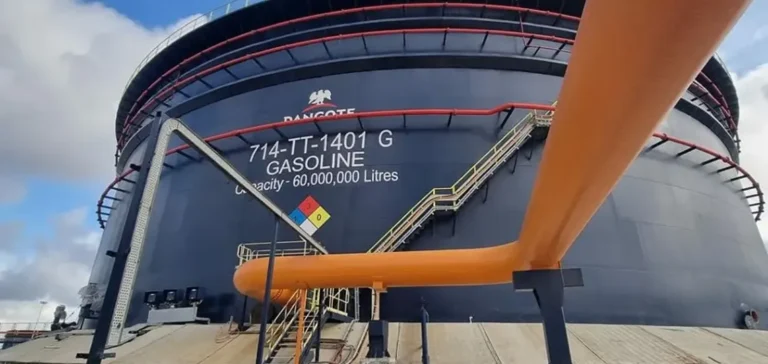Dangote Group is preparing to launch a forty-day maintenance operation on the gasoline manufacturing unit of its refinery complex near Lagos. This programme, initially considered for October, will now begin in December. The facility, with a capacity of 650,000 barrels per day, is set to replace its catalyst and carry out work on the main reactor, according to information shared by Industrial Info Resources (IIR).
Strategic maintenance and revised schedule
The postponement of this technical intervention aims to optimise the refinery’s operating cycle and limit the impact on national gasoline production. This maintenance, which will start on December 4, involves the temporary shutdown of the main residue fluidised catalytic cracking unit, a key piece of equipment for converting oil residues into light fuels. According to IIR, the refinery restarted this specific unit on July 12 after a previous maintenance phase.
Production impact and market monitoring
The Dangote complex, the largest on the African continent, plays a central role in fuel supply in Nigeria. The planned shutdown of the gasoline unit is expected to be closely monitored by sector stakeholders, given the Nigerian market’s strong reliance on this high-capacity installation. The replacement of the catalyst and reactor repairs are considered necessary operations to ensure equipment reliability and stable production over the long term.
Refinery officials have not made any official comment at this stage regarding the details of the schedule or the management of the technical shutdown. Careful monitoring of the operation is expected in a context where the infrastructure’s performance directly influences fuel supply in Nigeria. Data provided by IIR remains the main source of information on this maintenance programme.






















